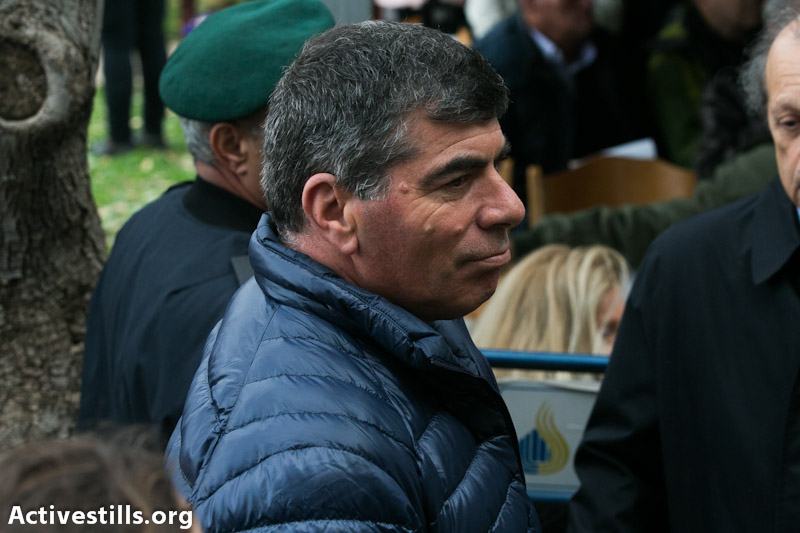Turkish court issues arrest warrants for four retired Israeli generals who were in senior command positions during the deadly raid on the Mavi Marmara in 2010. Does this spell the end of reconciliation efforts between the two countries?
A Turkish court has issued arrest warrants for four retired Israeli generals over the killing of 10 Turkish citizens aboard the Mavi Marmara four years ago this week. The decision appears to be a reversal of the same court’s refusal to issue international arrest warrants late last year.
The court also asked INTERPOL to issue a Red Notice, which would put the Israeli officials in danger of arrest in much of the world. INTERPOL could reject the request if it deems the prosecutions to be political, or for a host of other reasons.
The four retired generals, including former IDF chief of general staff Lt.-Col. (ret.) Gabi Ashkenazi, were all in senior command positions during the deadly commando raid on the Turkish-flagged civilian ship. The Marmara was attempting to break through Israel’s naval blockade on the Gaza Strip.
A Turkish special prosecutor initiated criminal charges against the four Israeli generals several years ago, and they are being tried in absentia in an Istanbul court. The prosecution is seeking 10 life sentences for each of the Israeli military commanders.
A tenth victim of the raid, who was in a coma for the past four years, died last week, bringing the death count up from nine.
A UN-initiated investigation into the Marmara incident ruled that Israel’s killing of the Turkish activists, including one dual American citizen, was “disproportionate” and “unacceptable.” The UN Palmer Report, however, was not an independent criminal or legal investigation; it relied solely on evidence and testimonies provided by the Turkish and Israeli governments.
Turkish-Israeli diplomatic relations, which were downgraded following the Mavi Marmara killings, appeared to be nearly repaired in recent months. Israeli Prime Minister Benjamin Netanyahu apologized to Turkish Prime Minister Recep Tayyip Erdoğan last year at the urging of U.S. President Barack Obama. Domestic political conditions in both countries have been cited as delaying factors in recent months.
A final reconciliation deal, although reportedly nearly complete, has not been signed. Two demands appeared to be blocking the deal: Turkey’s insistence that Israel lift its blockade on Gaza, and Israel’s insistence that the Turkish Parliament pass legislation to block the prosecution of Israeli officials involved in the deadly raid.
Concurrently, Turkey is vying for a piece of Israel’s massive natural gas find, an economic factor that appeared – at least for a moment – to have the capacity of trumping diplomatic and ideological differences between the two former allies. Turkish officials in recent years have made a number of statements indicating their interest in serving as a gateway for Israeli gas exports to Europe. Israel has yet to pen an agreement with any other country regarding a gas pipeline to the continent.
***
The arrest warrants could impact Turkish-Israeli reconciliation efforts in either direction.
Israel could set aside its reservations about signing the draft deal in order to force Erdoğan to grant immunity to the former Israeli generals, which would effectively end the matter. Israel has made great diplomatic efforts in recent years to shield its former leaders and military commanders from arrest and prosecution overseas.
Activists have attempted to take advantage of universal jurisdiction laws in a number of European countries in order to force the arrest of former and current Israeli officials. This month, the UK granted current Justice Minister Tzipi Livni diplomatic immunity during a visit in order to quell attempts at arresting her. The Israeli government has sought a change in British law to limit Israeli officials’ exposure to universal jurisdiction arrest warrants.
In the other direction, the arrest warrants could push the two sides further apart. If Israel feels that it has no leverage to kill the warrants, it may take more hardline stance toward Ankara, and disengage further from the reconciliation process.
Both countries maintain embassies in each other’s respective capitals, but no ambassador has manned either for a number of years.
Related:
Investigating Gaza flotilla deaths would sacrifice ICC’s legitimacy
Mavi Marmara report shows how Israel investigates itself



